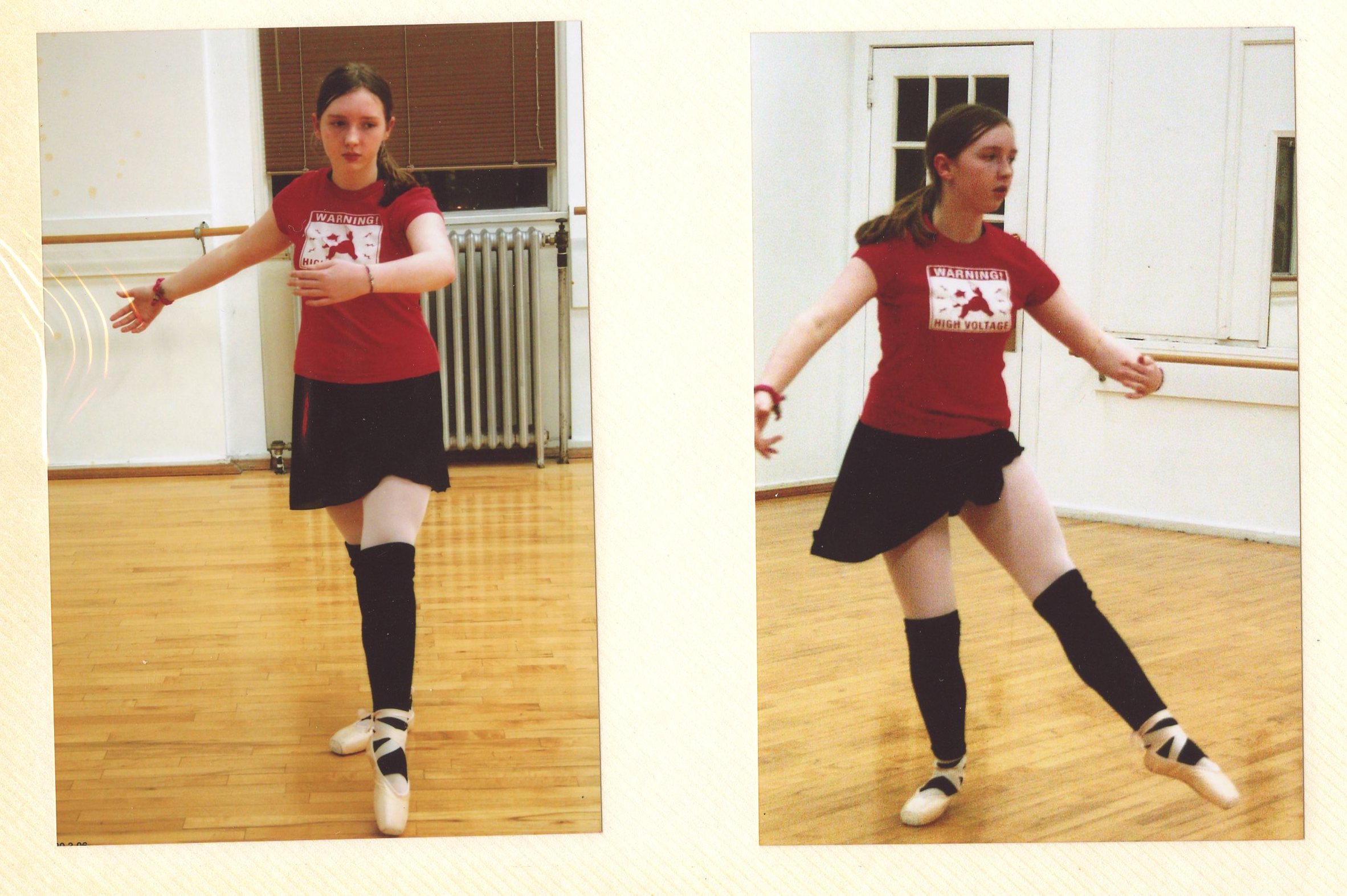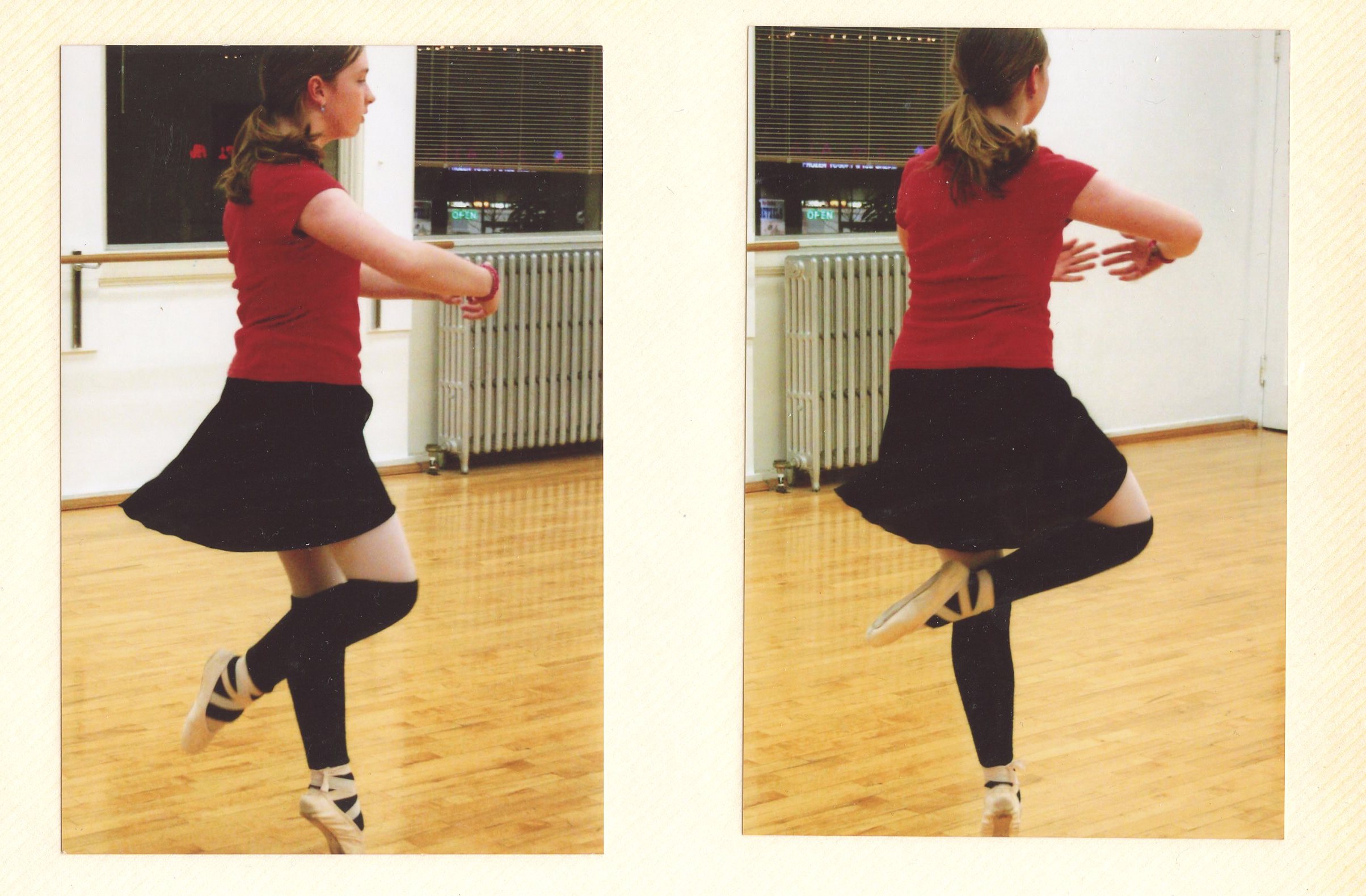DEAR BODY, I'M SORRY
“It’s easier to love yourself when there is less of you to love.”
You don’t take up as much room. You feel less self-conscious about the things you eat around other people, the clothes you wear, the volume of your voice and brazenness of your attitude. As if just by being bigger, just being, you offend people. And it is near impossible to shed that feeling deep down without shedding the weight that made it so. But even years ago, when I weighed far less, I constantly felt ugly and inadequate. I wish now I could reach back and shake myself, but if there’s one thing I’ve learned, it’s that you can’t force self-love.
I’ve had a complicated relationship with my body from a young age. I sprung from the awkward preteen years of growing breasts too fast and hips too wide and decided this would be a phenomenal time to start ballet, where my curves and broad shoulders had no place in a leotard. But I wanted to build stage presence, better my posture, and hopefully embody some kind of girlish grace that I’d been chasing for years.
My biggest assets were my long, steady legs, and striking arches that never quit on pointe. Every other trait worked against me, and the constant dysphoria of my clumsy form in this beautiful setting kept me hiding myself under layers of clothing, even when I was hot and uncomfortable.
Despite my oddities, I worked hard and grew stronger, and I was invited to join our dance company for year-round performances. Ballet became part of me, and my whole heart lived for the beauty of the music and the delicate movements that accompanied it. And while my self-assurance should have grown with my skills, it opened up a new abyss of insecurity which can be encapsulated entirely in the phrase “Monthly Weigh-Ins”.
Stretching before a show.
We were never punished for our shortcomings. This wasn’t some tyrannical studio saddled with cutthroat competition, although it wasn’t without its disordered eating. There were girls I danced with who survived off a single apple a day, or some days, just several cups of coffee. One of our principal dancers passed away abruptly, and the cause of death was never clear. Yet these were not warning signs to me; I internalized the pressure said and unsaid to be slim and took it to a whole new degree. Every month, 125 pounds was the limit, no matter your height or age. Every month, I stepped on the scale, and every month I prayed it would read a number to make me proud, that abstaining from food for the past two days would have magically worked. (I found out quickly that it doesn’t, and neither does vomiting either.) The best weigh-in day I had was when our instructor misread the scale, and thought it read “121” instead of “131”. She congratulated and cheered me. I felt like I’d cheated death.
With that “new low” came a reward: the chance to dance with a partner. I swooned at the thrill of accompaniment, of feeling feminine and “good enough” to be there. Having my partner’s hands on my hips to lift me higher in my jumps, or turn fouetté turn after fouetté turn with perfect ease—I was elated, if only for a short while. I scrutinized his face for the slightest hint of a struggle, for the signal that I was too heavy, too lumbering to live up to this.
At another rehearsal, our beloved instructor had our star dancer and I stand side-by-side. It was to show how my legs were just as long as hers, if not longer—some strange way to build morale, as if I too could aspire to look like her one day. But seeing our shapes pitted together devastated me. Her, near 20 and an elegant, slender prima ballerina, vs. me, 13, a lumpy, freckled imposter in a Looney Tunes t-shirt and pink tights that only inflated my thighs. Little moments like these quietly ate away at my confidence and carefree attitude. Little comments about muffin tops, the constant reminders to suck in, and my fellow, gorgeous doll-like dancers pointing out their slightest flaws made mine feel impossible to ignore.
While I truly loved being on stage, I hated seeing myself in photos and videos afterward; I looked so out of place. I reached a point eventually where I knew I’d either have to commit my life to this futile pursuit or leave it behind, and following our final performance before I turned 17, I didn’t return to ballet. Our instructor called my house, and I never picked up. Eventually, too much time had passed to make polite amends and I simply buried the shame and moved on with my life.
Even after breaking up with ballet, I still obsessed over my appearance, as many teenage girls do. I poured hours into my eyeliner and straightening my hair every morning. Between that and my easy-going attitude, I hoped that something appealed to people. I even found out that one of my closest friends in high school had a thing for me, which made a jab from one of his friends hurt even more:
“Why her? She’s kinda fat and weird.”
This was said by a boy I’d known since elementary school. He’d reduced my entire existence to “kinda fat and weird”. The word “fat” itself felt like a curse word, whether or not it was true, and it’s taken me years to realize that it’s not. If a friend of mine ever called themselves fat, I impulsively denied it. Because that’s what (I thought) friends do. But instead of “No, you’re not!”, I should have been saying, “Why does it matter? You’re beautiful.”
When you’ve felt like this your whole life, the word “skinny” feels like heroin. It’s a simple, often well-intended compliment that helps foster a weight-obsessed society where someone’s worth is defined by their shape—something that has no indication of fitness at face value. If someone’s skinniness is due to self-starvation, addiction, depression, or other illness, is that really the ideal we want to enforce in one another?
College gave me a chance to meet all new people who had never known my past, but it was definitely a place of first impressions. My freshman year, I went out and watched as men flocked to my two best friends like moths to a lamp. Meanwhile, my game was to try and make conversation—something that’s fraught at frat parties. What could I change? The answer always fell to my weight, and I was always trying to find a quick fix for it. One month, I tried taking diet pills I found online to give me an edge; instead, they gave me hives and tremors so bad I couldn’t hold a pen.
I survived on $100 monthly grocery budgets those first couple years and shift meals from my café job. Between work, school, and extracurriculars over the years—magazines, organizations, unpaid internships I was a part of—I was busy 12-14 hours a day. I got sick often, outgrew my clothes, and before I knew it, I’d gained over 20 pounds since starting college. However, this a familiar story for many young people. I accepted it and bought more pairs of leggings.
After graduating, I was on my own. I moved states and dove headfirst professionally, launching my career while letting go of everything I’d ever known. With a long-distance relationship and few friends around, I started working out more as a way to fend off the loneliness. It was something that took up time, and that took away my worry. I ate less, and I ate alone, rarely venturing out of my bedroom or away from my office desk for meals. For the first time in my life, I received compliments for losing weight, and I kept craving more. Then, as summer came to a close, I went through heartbreak. I coped with the guilt through heavy drinking and tumbled into a dark, depressive period, undoing any progress I’d made toward a “healthy” ideal.
A portrait by Chloe Brobst, shot on film.
Months past and I met someone new. Someone who really loved to cook. Something shifted in me; I entered a whole new love affair with food, and with life. Me, who shied away from spicy foods, blue cheese, pickled things, anything fishy beyond a California roll was now dousing stir fry in sriracha and ordering octopus, embracing this fresh world of colorful bliss. Food has always been a troublesome comfort for me—I’m a classic compulsive eater, especially when stressed. But this was different. I learned to really enjoy the meals we made, for the first time since leaving home, and particularly taking joy in trying new things.
It quickly occurred to me that previously, by depriving myself of delicious foods I loved, I wasn’t really living. Any time I’d tried to adhere to a strict, unforgiving diet, I’d only been setting myself up to fail. So slowly I opened my heart while reigniting my relationship with exercise. The goal this time wasn’t to lose weight or pass the time. It was to blow off steam from stressful workdays, to enjoy a challenging but fun activity with friends, and to feel my body growing stronger and more capable of anything I’d imagined, even in my ballet days. It was also an exceptional aid to a larger effort I’d been taking to get my anxiety under control.
I tapped into that special kind of euphoria that hits as you finish your very last sprint. I tried barre, spin, running, snowboarding, tai chi, personal training, kickboxing, rowing, four kinds of yoga, and a number of workouts I found on Youtube. I found things I loved, and things I hated, but most of all, I found a whole new passion for my body and the strength it possessed.
I think often about this word—strength. I think about the strong, powerful parts of my body I used to hate that were now helping me achieve things I didn’t think I could do. Those broad shoulders, thunder thighs, soft belly: all were beautiful pieces of me working together to keep me moving, fighting, breathing, and thriving in the process. Sometimes I pause and feel the need to apologize to my body, for our troubled relationship over the years. It should be everyone’s goal to be kinder to themselves, but it’s a learning exercise. And often an ongoing battle.
Next time, when measuring yourself in terms of health, fitness, and/or overall wellness, leave weight out of the equation. In terms of happiness and accomplishment, there are many productive ways to challenge ourselves that don’t revolve around a scale. How many books can you read this year? How many new places can you see or new friendships can you make? Can you write a song, run a 5K, learn to paint, find a way to volunteer? Life is so much bigger and more exciting than the sum and size of our parts. Mine is made up of the food I love, the supportive people who surround me, and the pursuits that make me feel invincible. With all that wonder, there’s no room for shame and self-deprecation.
What can we achieve when we’re allowed to love ourselves?












